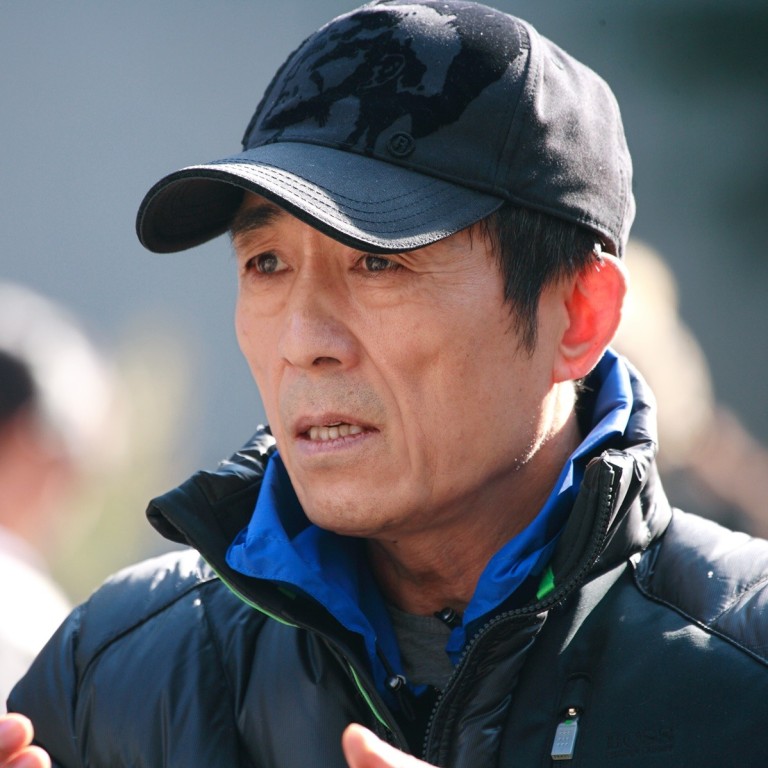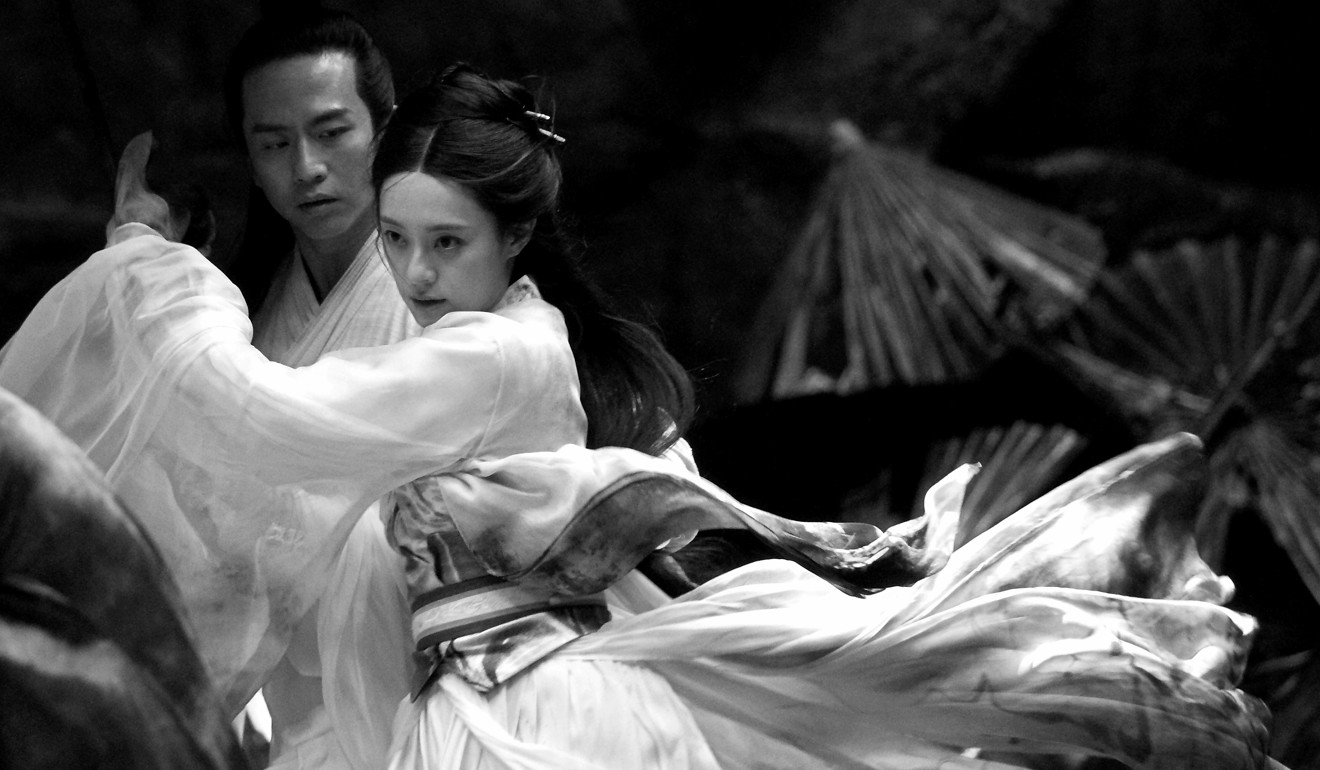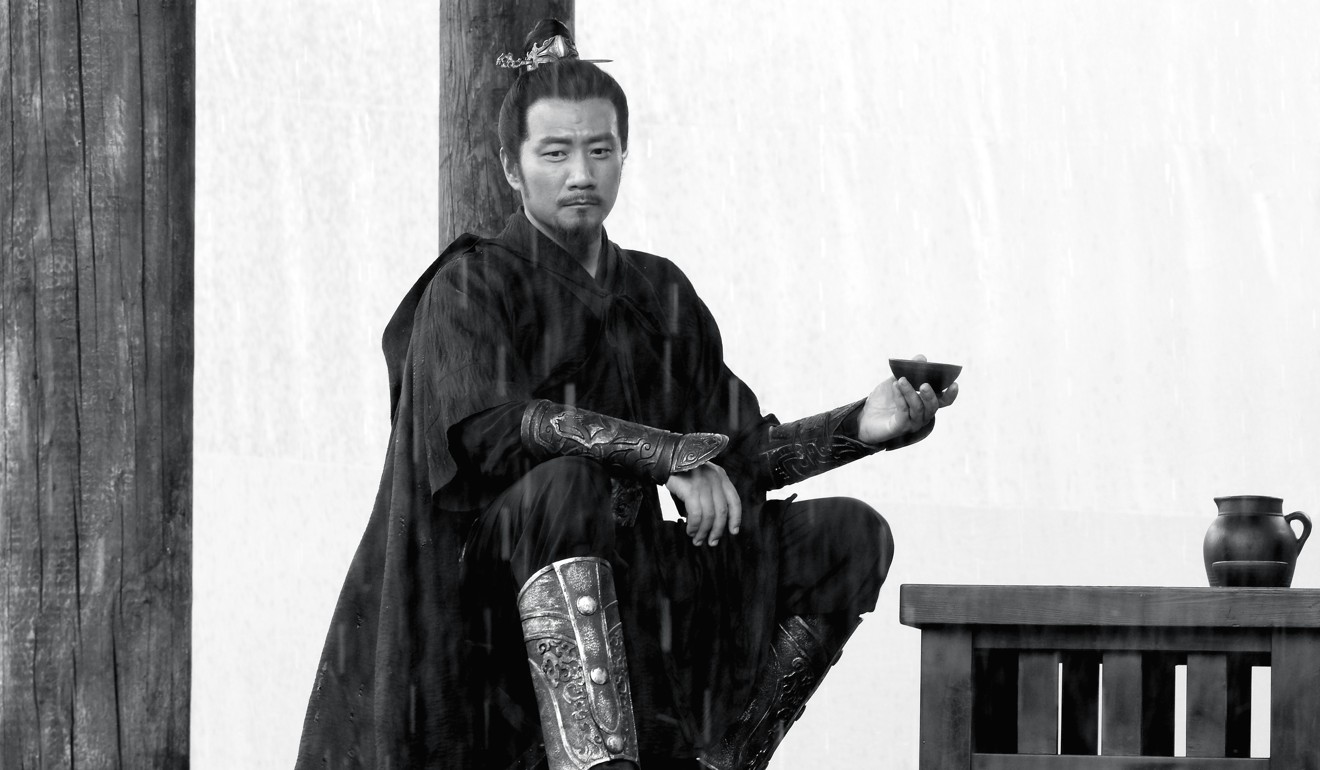
The Great Wall director Zhang Yimou, 68, back at his best with Shadow – and he has no plans of slowing down
- Zhang Yimou’s Shadow is an exhilarating martial arts film with a Shakespearean-like story of deception and betrayal
- At 68, he is not done yet with his star career and is already working on his next film
Zhang Yimou fixes me with a stare when I ask if his latest film Shadow is his toughest assignment yet. “Everything is difficult for me!” he says.
It’s not the sort of statement you’d expect from China’s premier director. From the early days of Ju Dou and Raise the Red Lantern to blockbusters like Hero and House of Flying Daggers, his films appear almost effortlessly crafted. Despite his comment, “difficult” doesn’t seem in his vocabulary.
Are Chinese film-goers mature enough to look past budgets and stars?
Even his troubled last film, The Great Wall, saw the 68-year-old Zhang overcome the odds – and the trickiness of a Hollywood-Chinese co-production – to create a fantasy monster film that, despite critical apathy, still took US$335 million around the world.
It’s even more remarkable when you consider the negative press that film got on social media in the run-up to release, with users claiming the role played by Matt Damon should’ve gone to an Asian actor.
So what did he learn? “Well, that was a Hollywood movie,” he reflects. “I had the chance to see how films are made in Hollywood, but it’s not something I can use directly in making films in China. It was an experience.”
It’s a diplomatic answer, not entirely unexpected, but it’s no surprise that Zhang has returned to China for Shadow, an exhilarating martial arts film that again showcases his breathless skills as a filmmaker.
It’s September when we meet at the Venice Film Festival, where Zhang previously won the Golden Lion twice for The Story of Qiu Ju (1992) and Not One Less (1999). This time, with Shadow unveiled, the festival is awarding him its “Glory to the Filmmaker” trophy for his extraordinary body of work.

By November, Shadow would also scoop four Golden Horse awards, including best director, and a healthy US$90 million at the Chinese box office. The film has just garnered six nominations at the Asian Film Awards, which will announce its winners in March.
But none of this quite conveys the sheer exuberance of Shadow. Set during China’s Three Kingdoms period (220–280AD), it’s a Shakespearean-like story of deception and betrayal.
Much of the film revolves around the injured Commander Yu (Deng Chao) of the Pei Kingdom, who has retreated into the shadows and allowed a low-born lookalike to take his place, unbeknown to even the petulant young king (Zheng Kai). Scripted by Zhang and newcomer Li Wei, the director calls the story “a power struggle between men” – something that may come as a surprise to his fan base.
Right back to his 1988 debut Red Sorghum, Zhang has been famed for creating leading female characters, as well as discovering actresses as Gong Li – a former off-screen partner to Zhang – and Zhang Ziyi. In Shadow, the women take secondary roles.

“I personally think in this film the two female characters are also very important,” counters Zhang, referring to Sun Li as wife to Commander Yu and Guan Xiaotong, who plays the king’s sister – a pawn in the relationships between the kingdoms. “All the men are struggling for power and to survive,” the director adds, “but she [the king’s sister] is struggling for her own respect.”
Yet in many ways, the complex plot falls secondary to Shadow’s jaw-dropping aesthetic achievements. Working with production designer Horace Ma (who worked on John Woo’s The Crossing), everything is styled in moody monochrome. Like a Sin City-style graphic novel come alive, Zhang slavishly adheres to this (lack of) colour palette, symbolising the murky morality of the characters.
Asian Film Awards 2019 nominations: Burning, Shoplifters vie for top prizes
If Hero was all lush reds, greens and blues, Shadow is its bleached-out opposite. “I think there is no other film made this way,” remarks Zhang, who was inspired by the ancient art of Chinese ink painting – “a very complex aesthetic with a very deep philosophical content”, as he puts it.
While computers were used in part to create the startling look, all objects on set were monochromatic. The effect, says Zhang, was like “standing in the middle of a painting”. Another inspiration comes from the tai chi symbol representing yin and yang – used in the film, strikingly, to decorate a giant circular platform where one-on-one duals take place.

Zhang acknowledges the “very deep understanding” in China of the principles of yin and yang, which he says, in many eyes has come to represent the duality of man. “In my film, I use it to represent human nature,” he says. “I believe that human nature is always dual.”
Beyond these elements, Zhang’s action scenes are so utterly mesmerising, Shadow cannot be seen as anything but a major return to form.
Credit must go to action director Ku Huen-chiu – or Master Dee-Dee, as he’s affectionately known – whose show-stopping work can be seen in The Matrix, Kill Bill and the AMC series Into The Badlands. Here, he outdoes himself – not least in one scene that elevates the humble umbrella to a weapon of mass destruction.

In the scene in question, soldiers use metal versions of the traditional oilpaper umbrella like coracles, spinning down a sloped, rain-slicked street in formation, as they fire out blades.
“It’s my own creation, actually,” says Zhang, who drew from the tradition of kung fu films where everyday objects can, in the right hands, become deadly. Again, Zhang largely avoided the use of computers – using specially-made metal umbrellas for the close-up shooting. “Only this way does the audience have this feeling of something real,” he says.
Was he also drawing from his own Oscar-nominated wuxia films, Hero and House of Flying Daggers? The two films were responsible for bringing Zhang’s work to global – particularly American – audiences, so it would be no surprise if he returned to their influence here.

“They are not the same, even if there are many common elements,” he argues. “I wanted some images that provided sensation – that is a common element you find in all my films.”
Shadow’s ravishing visuals certainly stimulate the senses, but none of this explains why “everything is difficult” for a man who has been making films since he first attended the Beijing Film Academy in 1978.
“While I’m shooting one film, I’m always thinking of shooting the next one,” he answers. “When I was working on The Great Wall, I was already thinking about working on Shadow. And when I was working on Shadow, I was already thinking about working on the film I just finished shooting in China.”
Ranking every Hong Kong film released in 2018, from worst to best
This shows just what a restless creative force Zhang still is; he clearly has no desire to kick back into retirement. As mentioned, his next film is already in the can. Starring Zhang Yi, it looks set to be a gear-change from vast period epics.
Shot in Dunhuang, in northwest China, and set in the 1970s, it tells of a film fan living in a remote farmland. “It’s the story of a small character,” he smiles, “like my former movies.” Somehow he seems relieved by this.
Shadow opens in Hong Kong on January 17.

 (1).JPG?itok=0BHk6odg&v=1665981271)